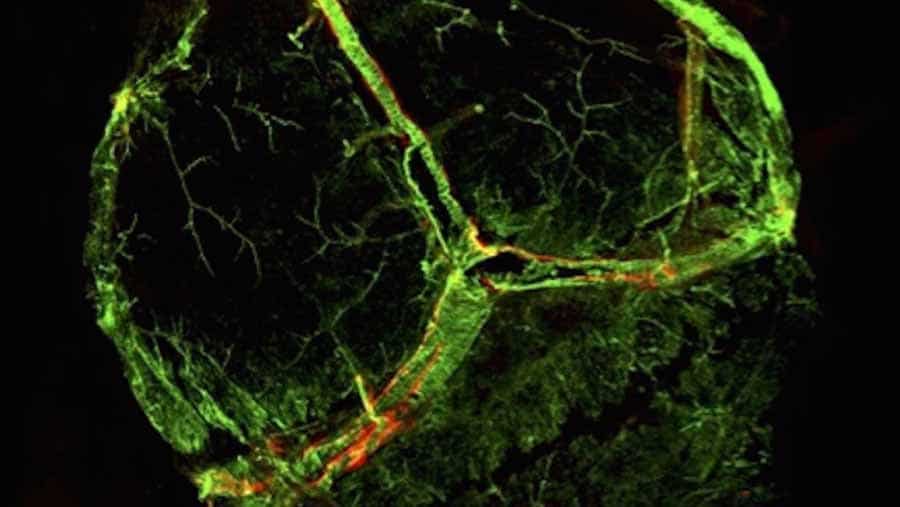
The newly-discovered lymphatic vessels, revealed in red, were nearly undetectable behind the larger blood vessels, revealed in green. “If you have no idea exactly what you’re after, you just miss it,” the lead researcher said.
A group of scientists have discovered the presence of previously unknown lymphatic vessels in the brain– a spectacular find that upends existing medical science and might have far-reaching ramifications for the research and treatment of neurological conditions like Alzheimers and numerous sclerosis.
This story is based upon a radio interview.
The discovery, published in the journal Nature, elicited enjoyment and surprise to name a few scientists. Even lead author Jonathan Kipnis, director of the Center for Brain Immunology and Glia at the University of Virginia in Charlottesville, was hesitant in the beginning.
“I actually did not believe there are structures in the body that we are not knowledgeable about. I believed the body was mapped,” he told one recruiter. “I believed that these discoveries ended somewhere around the middle of the last century. But apparently they have not.”.
The discovery was made possible by a “remarkable post-doctoral fellow” in Kipnis’s lab, Dr. Antoine Louveau. Kipnis’s research study focuses mainly on the meninges, membranes that cover the brain and spinal cord.
Louveau developed a technique of mounting the whole covering onto a single slide that might be viewed through a microscope. The vessels were obviously concealing in plain sight, behind a larger capillary in the sinus cavity, a difficult area of the body to image.
Credit:.
Courtesy of the University of Virginia.
Lymphatic vessels operate as the path for immune cells to move through the body to fight infection and condition. Scientists were certain that these vessels did not exist in the brain. Now they know that they do– and this has possibly extensive significance.
“The immune relate to numerous neurological disorders is now apparent,” Kipnis says. “If the immune system is involved with those conditions, [then] the interaction in between the brain and the body immune system is moderated by these vessels. Our team believe that they most likely will be found to play a major role in a lot of, if not all, neurological conditions where the body immune system is involved.”.
A typical reaction to the new discovery has actually been “we have to reword all the anatomy textbooks.” Kipnis concurs.
“If you open today’s textbooks, it states that the main nerves is an immune-privileged website and it has no lymphatic vessels,” he states. “I think this immune-privileged website has lymphatic vessels. So they must absolutely be modified.”.
This article is based on an interview that aired on PRI’s Science Friday with Ira Flatow.





No comment yet, add your voice below!